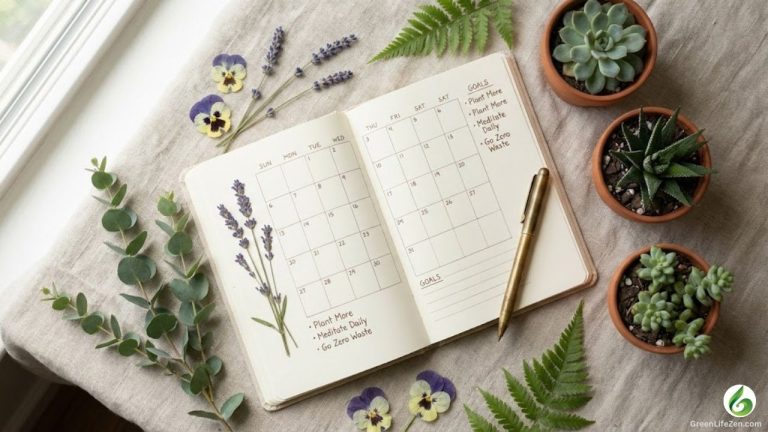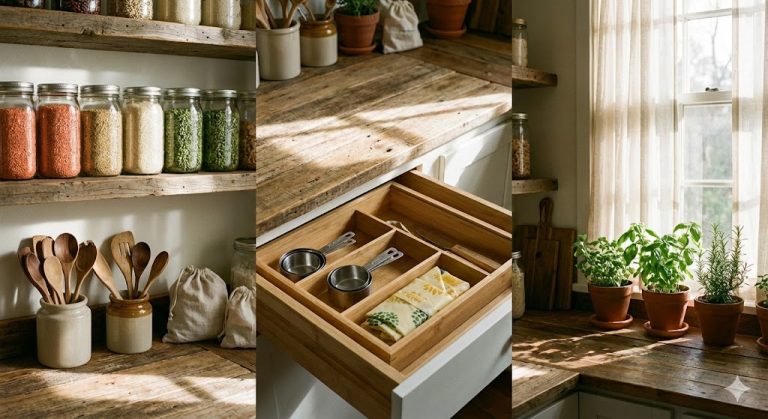Transform your backyard into an eco-friendly oasis with these DIY upgrades.
Picture this: lush greenery, vibrant flowers, and a serene atmosphere that invites you to relax and unwind.
By using sustainable materials, energy-efficient lighting, and water conservation strategies, you can create a greener space that benefits both you and the environment.
Take control of your garden’s destiny with DIY composting and recycling solutions, and embark on a journey towards a more sustainable future.
Join the community of like-minded individuals who strive for a sense of belonging in a world that values eco-consciousness.
Eco-Friendly Landscaping Design Ideas
Transform your outdoor space into an eco-friendly oasis with these DIY landscaping ideas.
By incorporating solar powered irrigation and selecting native plants, you can create a sustainable and visually appealing backyard.
Solar powered irrigation systems utilize the energy from the sun to water your plants, reducing your reliance on traditional energy sources and lowering your carbon footprint. Not only is this environmentally friendly, but it also saves you money on your water bill.
Additionally, selecting native plants for your landscaping design ensures that they’re well-suited to the local climate and require less maintenance. Native plants also provide habitat and food for local wildlife, promoting biodiversity in your backyard.
With these eco-friendly landscaping ideas, you can create a beautiful and sustainable outdoor space that you can enjoy while also making a positive impact on the environment.
Sustainable Materials for Backyard Upgrades
To continue creating an eco-friendly oasis in your backyard, you can further enhance sustainability by incorporating sustainable materials for your upgrades.
When it comes to decking options, consider using sustainable materials such as reclaimed wood, bamboo, or composite decking made from recycled materials. These alternatives aren’t only durable and long-lasting but also reduce the demand for new wood and minimize environmental impact.
To complement your sustainable deck, choose eco-friendly furniture choices. Look for furniture made from recycled materials, such as plastic or aluminum, or opt for natural materials like teak or cedar that are sustainably sourced. Additionally, consider investing in furniture with minimal or no chemical treatments to ensure a healthier and more eco-friendly environment.
Energy-Efficient Lighting Options for Outdoor Spaces
For an eco-friendly backyard upgrade, continue enhancing sustainability by incorporating energy-efficient lighting options into your outdoor spaces.
By choosing solar powered fixtures, you can reduce your reliance on traditional electricity and take advantage of the sun’s renewable energy. Solar powered fixtures are easy to install and require no wiring, making them a convenient and cost-effective choice. They utilize photovoltaic cells to convert sunlight into electricity, which powers the LED lights.
Another option to consider is motion sensor lights. These lights only turn on when they detect movement, saving energy by only illuminating when needed. Motion sensor lights are ideal for pathways, entrances, and other areas where lighting is only required intermittently.
Water Conservation Strategies for a Greener Backyard
To further enhance the sustainability of your eco-friendly backyard, you can incorporate water conservation strategies that will help you save resources and reduce your environmental footprint. Here are four effective strategies to consider:
- Rainwater Harvesting: Install a rain barrel or cistern to collect rainwater from your roof. This water can then be used for watering your plants and garden, reducing the need for treated tap water.
- Native Plant Selection: Choose plants that are native to your region, as they’re adapted to the local climate and require less water. Native plants also support local ecosystems and attract beneficial wildlife.
- Mulching: Apply a layer of organic mulch around your plants to retain moisture in the soil. This helps reduce water evaporation and keeps the soil cool, resulting in less frequent watering.
- Efficient Irrigation Systems: Upgrade to a smart sprinkler system or drip irrigation system that delivers water directly to the roots of plants, minimizing waste and maximizing efficiency.
DIY Composting and Recycling Solutions for a Sustainable Garden
One way you can make your garden more sustainable is by implementing a simple DIY composting and recycling system.
DIY worm farming is a great way to repurpose waste materials and create nutrient-rich compost for your garden.
To start, you’ll need a worm bin, which can be made from repurposed plastic containers or wooden boxes.
Fill the bin with a bedding material such as shredded newspaper or leaves, and add your compostable kitchen scraps.
Introduce red worms to the bin, and they’ll consume the organic waste, turning it into valuable vermicompost.
Make sure to maintain the right conditions by keeping the bin moist and providing a proper balance of carbon-rich and nitrogen-rich materials.
With a DIY worm farming system, you can reduce waste, save money on fertilizers, and create a sustainable garden.
Conclusion
So there you have it, folks! By implementing these DIY eco-friendly backyard upgrades, you can transform your outdoor space into a sustainable oasis.
From using sustainable materials to conserving water and embracing energy-efficient lighting, there are plenty of practical ways to make your garden greener.
Remember, Rome wasn’t built in a day, so take it one step at a time. Soon enough, you’ll be enjoying the fruits of your labor and reaping the benefits of a truly green thumb!




